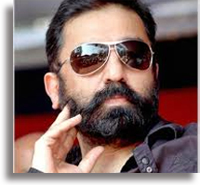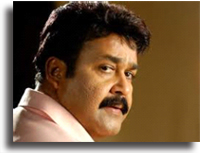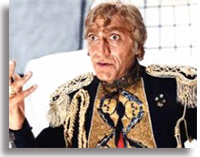ACTING
Career as an Actor in India
Actors usually perform in the theatre, radio, television, video, or motion pictures. It's really hard for most actors to find a steady work. Only very few become famous "stars." Some even well-known, skilled actors might be acting as supporting roles. Others work as "extras," with no lines or may be only one or two lines. There are opportunities also to teach in high school or college drama departments, acting conservatories, or public programs.Actors work under constant pressure and it is fact that many face stress from the need to find their next job and that is the reason that the actors need patience.
Most acting jobs only are there for a short period of time that is from 1 day to a few months-which means that actors can have a long time between jobs. Some actors have other jobs in order to make enough money.Actors mainly work long and irregular hours. They may do one shift at night and another during the day. There is also lots of travelling with this particular job. Evening and weekend work is a regular part of an actor's life. Actors should be in good physical condition. They must often endure heat from bright lights.
Nature of the Work

Some actors tend to become drama coaches, directors, or acting teachers in schools, colleges, and local theater groups. Many actors work at other jobs while they seek their first roles or are between acting engagements. New actors often start in small media companies with small roles. They might also progress to larger roles in other media or become understudies to lead roles. If the lead performer falls ill, usually the understudy will take his or her place for that performance. Actors tend to move from very small experimental theaters or children's entertainment to larger companies with larger audiences.An actor's success would mainly be the result of hard work, self-discipline, patience, and determination. Good actors often have some special quality or talent that enables them-through words and gestures, music and dance-to make the audience believe they are the characters they portray.
Being an actor requires lots of learning lines and stage techniques, putting on makeup, to be being fitted for costumes, and attending rehearsals and classes. Acting is all about team effort that requires cooperation with many different people: directors, designers, stage managers, fellow actors, camera operators, and a variety of backstage and production workers.If stage actors are successful in a play, then they might repeat their performance many times over-sometimes for more than a year. During this time their schedule might also include attending rehearsals if the director decides they are becoming "stale" or if some cast members are replaced with new actors. When the run for the long work for a given production is over, they must seek work again. Acting in the motion pictures is different from stage acting in that movie actors often perform only small parts of their roles at one time. Each scene is usually shooted separately and often out of sequence. In addition, film actors may divide their time between studio work and on-location shooting.
Education and Training Requirements

The more experience a new budding actor gets, the better. Prospective actors are advised to join a local theater group, participate in activities that require public speaking, take part in school plays, and become avid viewers of films and plays. Besides developing the acting skills, most of the aspiring performers should study speech, voice, pantomime, dance and movement, period styles, improvisation, and a variety of other skills like fencing, juggling, or playing a musical instrument. A knowledge of theater history and of play and film production is important. Courses in psychology may also be helpful. In general, if there is more training and practical experience an actor has, the wider the range of employment possibilities.
Getting the Job : To get parts, actors usually must "make the rounds." This process includes finding out what plays or films are scheduled for production, visiting and registering with casting offices, leaving photos and resumes, and attending auditions. Producers and directors hold these "tryouts" because there are many people competing for the same role. Actors may read a few lines or walk and move across the stage so the producers and directors can get an idea of their style. Directors and producers also "scout" performances of university and off-Broadway plays.Notifications for auditions are generally posted in newspapers and local magazines. As actors become better established, they may rely on personal contacts for employment. Actors often hire casting agents or managers to help them get auditions or arrange personal interviews with producers and directors. These agents are the one who get a percentage of the performers' earnings, and they are helpful in circulating actors' resumes to casting offices, regional theaters and film companies.
Working Conditions

Acting Career Information: Becoming an Actor or Actress

Step 1: Enroll in Classes: Although no formal training is strictly required to become an actor or actress, it is reported that most professionals in the industry participate in college drama courses or acting classes. College degree programs allow students to expand their skills in various acting fields, including impromptu acting, sketch comedy, voiceover work and musical theater. An undergraduate degree program in drama or theatre includes coursework such as voice and diction, stagecraft, acting theory and stage management.
Step 2: Gain Professional Experience: Actors need whatever experience they can get in order to improve their skills and gain more fame and recognition. Many actors start by participating in community or college theatrical productions. Others may choose to perform publicly at open theatres. Performing in other public settings, such as nightclubs, dinner theaters or theme parks, can also help beginners get real world experience.
Step 3: Learn About Finding Work: Actors need to know the different ways they can find acting positions. For example, small theater productions usually have open casting calls where anyone can show up and audition, delivering lines or portraying a character. Larger theater productions, on the other hand, often have closed casting calls that require actors to have the right connections or qualifications in order to audition. Finding work as an actor may also involve submitting résumés and head shots to potential casting directors. Actors also participate in lengthy auditions that can include several callback sessions before a final decision is made.
Step 4: Find an Agent: While it isn't mandatory, having an agent can make working as an actor easier. Agents complete most of the business-related tasks involved with acting, such as mailing out résumés, scheduling audition appointments and negotiating contracts. Having an agent completing these administrative tasks provides actors with more time to practice their skills. The majority of agents also have connections with casting directors, which means they can more easily connect clients with regular acting roles. Actors often have to shop around for agents, before actors submit résumés and audition tapes to agents, they may want to research each agent.
Skills and knowledge
Actors need to have the following:
- knowledge of how people behave and speak so that they can create believable characters
- the ability to project their voice to fill a room
- knowledge of body language and movement
- knowledge of a variety of books, plays, and poetry
- knowledge of different cultures
- skill in interpreting and analysing roles
- small business skills, including the ability to market and promote themselves
- creative ability
- memorising skills
- research skills
- good communication and listening skills.
- Other skills, such as playing a musical instrument, singing or dancing, are also useful.
Personal Qualities
Actors need to be:
- disciplined and motivated
- confident in themselves and their ability, and dedicated to acting
- creative and imaginative
- observant
- able to accept criticism and work well under pressure
- able to take direction
- able to work well as part of a team
- Able to turn up to when required on time.
Institutes Offering Courses
Acting |
Bollywood and Regional language actors in these modern world are considered to be as trend setting icons of Indian Cinema. They are all time favorite celebrities for Indians. They form the sphere of influence for the fashion and style industry all over the world. Here is a list of some of the popular and renowned actors : Aamir Khan, Abhishek Bachchan, Ajay Devgan, Akshay Kumar, Akshaye Khanna, Amitabh Bachchan, Amjad Khan, Amol Palekar ,Amrish Puri,Anil Kapoor, Anupam Kher, Arbaaz Khan, Ashok Kumar, Dev Anand, Dharmendra, Dilip Kumar, Guru Dutt are some of the famous actors in Bollywood. Apart from them there are also many regional actors who have made successful careers in acting.
